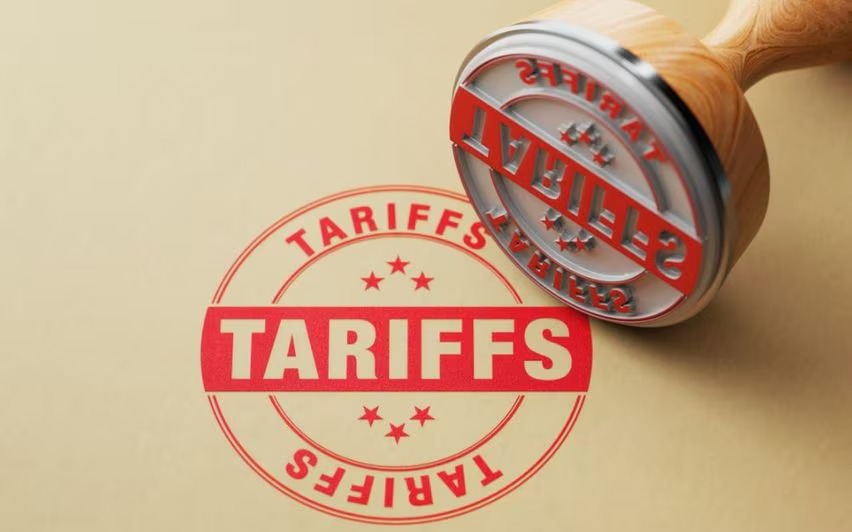
The escalating tariff war between the United States and China took a sharp turn this week, deepening global economic uncertainty but simultaneously opening strategic opportunities for nimble trading nations like Oman.
In a bold move, China announced a dramatic increase in tariffs on all U.S. imports to 125%, retaliating after the U.S. raised duties on Chinese goods to a staggering 145%. Despite publicly calling for dialogue, Chinese President Xi Jinping urged the European Union to join China in opposing what he described as “unilateral bullying” by the United States during recent talks with Spain’s Prime Minister Pedro Sánchez. Xi emphasized that “there will be no winners in a tariff war,” warning that nations who disregard global norms risk isolation.
Meanwhile, U.S. President Donald Trump announced a fragile 90-day pause on raising tariffs for dozens of countries — pointedly excluding China. Financial markets reacted sharply: major indices in Asia and on Wall Street posted steep losses as recession fears mounted. European leaders, including France’s Emmanuel Macron, cautiously welcomed the pause but underscored its temporary nature, stressing that businesses face “90 days of uncertainty.”
Despite intermittent signs of potential negotiations, tensions remain high, with both Washington and Beijing signaling readiness to escalate further if necessary. As the situation develops, companies worldwide are scrambling to find alternative trade partners and supply routes, adding to the volatility rippling across global supply chains.
Potential Positive Opportunities for Oman’s Logistics and Trade Sectors
Amidst the turbulence, Oman is uniquely poised to capitalize on the shifting dynamics. Muhsin Alrustom, Group CFO of ASYAD Group, shared insights on how Oman and Asyad Group can leverage these changes:

“The new U.S. tariffs could unlock strategic advantages for Oman, given that it remains only subject to the standard 10% tariff, and in particular to Asyad Group. As global trade routes recalibrate to bypass tariff-affected routes, Oman’s strategic location connecting East-West trade lanes, coupled with ASYAD’s top-tier infrastructure (ports in Sohar, Duqm, and Salalah), position it as a natural hub for rerouted cargo.”
He further noted:
“This shift could drive demand for transshipment services, with businesses seeking efficient alternatives to access markets in Asia, Africa, and Europe. ASYAD’s recent acquisition of Skybridge Freight Solutions (SFS) further strengthens its end-to-end multimodal logistics capabilities, connecting critical trade hubs like China, India, and the GCC.”
Additionally, Alrustom highlighted ASYAD’s expanded warehousing, freezones, and distribution centers near major ports as an increasingly attractive option for businesses:
“By offering integrated logistics solutions, Asyad can turn geopolitical disruptions into a competitive edge, reinforcing Oman’s role as a global trade facilitator.”
Challenges and Mitigation Strategies for Omani Companies
However, Alrustom also emphasized the risks associated with these new tariffs:
“The 10% tariff could disrupt existing trade flows that Omani companies, including Asyad, rely on. Direct exposure, like higher costs for U.S.-linked imports/exports, and indirect risks, such as delayed shipments from global supply chain bottlenecks, could raise operational costs and strain liquidity.”
To counter these risks, he stressed the importance of diversification and building resilience across supply chains:
“Asyad is well positioned to leverage its expanded global network to help clients navigate alternative routes, ensuring continuity despite turbulence. Internally, stress-testing liquidity and supply chain resilience is vital for ASYAD, including identifying potential vulnerabilities in logistics networks and developing contingency plans.”
Strategically, ASYAD Group is actively pursuing partnerships and acquisitions in high-growth regions to ensure it stays ahead of global demand shifts.
PwC Perspective: Strategic Positioning and Risks
Carlos Garcia, Partner, Middle East Customs & International Trade at PwC Middle East, further elaborated on the broader implications for Oman:

“The new U.S. tariffs present several opportunities for businesses in Oman: Enhanced Export Competitiveness, where Omani exporters may eventually face lower tariffs compared to competitors subject to higher duties. Local Production could also emerge stronger — businesses that produce domestically and are less reliant on foreign inputs may gain a competitive edge by offering price stability amid global uncertainty. Finally, Strategic Positioning in Global Trade: Oman has the chance to brand itself as a reliable trading partner in a shifting landscape, forging stronger trade relationships and identifying new market opportunities.”
However, Garcia cautioned that the new tariff structures come with serious challenges:
“The new 10% tariff rate effective April 5, 2025, supersedes any preferential treatment under the existing U.S.-Oman free trade agreement, though key exemptions remain for goods such as energy and energy products, chemicals, certain electronic components, etc. Tariffs on steel, aluminium, and automotive imports pose additional hurdles, raising procurement costs in the US and impacting export competitiveness.”
He emphasized that while the immediate impact on Oman importers may be limited, higher procurement costs for U.S. goods and goods produced with U.S. components could ripple through supply chains:
“It is critical for Omani businesses to immediately assess how the recent (and upcoming) developments impact their supply chain and plan accordingly. Short-, mid- and long-term strategies are essential — from using customs duty levers and transfer pricing quick-wins to reassessing global tax strategies and potentially transforming sourcing strategies, manufacturing locations, and overall supply chain footprints.”
Garcia concluded with a strategic recommendation:
“By staying informed, agile, and proactive, Oman’s businesses can turn global disruptions into long-term resilience and growth opportunities.”
__
While the Trump-era tariffs have reignited trade tensions worldwide, Oman stands ready to turn challenge into opportunity. Through forward-looking strategies from companies like Asyad and expert guidance from institutions like PwC, the Sultanate is well-positioned to emerge as a resilient, competitive hub connecting markets across continents during this pivotal moment for global commerce.



